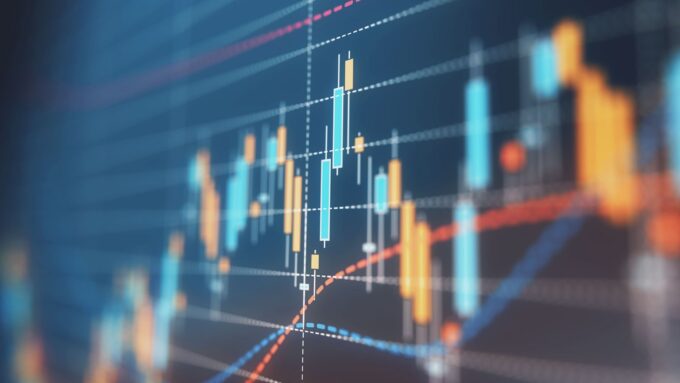After equity trading, commodity trading is another popular trading option for retail investors. The margin from commodity trading is higher than currency trading but the risks involved are also higher due to market fluctuations. Commodities are goods that have some intrinsic value.
They can be classified into two categories: hard commodities and soft commodities. Metals and minerals are considered hard commodities that are used as resources to make other products. Agricultural products like rice and wheat are considered soft commodities that are used for initial consumption.
The most traded commodities are gold, silver, crude oil, natural gas, wheat, cotton, and coffee. The prices of commodities depend on the economic principles of supply and demand. One difference between the commodity and the equity market is commodity prices move opposite to that of stocks. This is the reason investors indulge in commodity trading when the stock market is volatile.
The commodity exchange is the legal entity that regulates the rules and procedures of commodity trading. Just like equities or currencies, commodities are also traded in exchanges.
Key Strategies for Commodity Traders:
To start with commodity trading, create a Demat account. Then open a trading account on a commodity trading app and MO investor app through any reputed broker with a proven track record.
Strategy 1: Finding the right commodity – The first thing to determine before trading commodities is to find your niche market. Investors usually trade in only one commodity rather than trading in multiple commodities. The nature and performance of each commodity market are different so it is best to stick to one commodity and be an expert in it through extensive learning and observation.

Strategy 2: Follow the trends – It is always the best advice to follow the trends of the commodity market you choose. You need to understand the historical patterns of the market and learn the factors leading to bearish or bullish trends.
Strategy 3: Scalping – Scalping is the strategy of profiting from small gains. The sculptor is an investor who makes short-term gains with small changes and exits before the losses start offsetting the profits. This is an important and one of the most profitable strategies in commodity trading to make short-term gains. However, an investor needs to be patient and persistent in his efforts to be good at the scalping strategy.
Persistence is the key to success in commodities
It takes diligence and a lot of hard work to be successful as a commodity trader. Many traders enter the commodity market to make quick returns but exit after incurring heavy losses. The fact is it is not very difficult to be profitable in the commodity market with detailed knowledge and experience.
With the ongoing political conflicts between US and China, the intraday volatility in the commodity market is at an all-time high. To gain good profit from intraday volatility you need to be a seasoned commodity trader. Moreover, you should always consult your financial advisor or broker for useful tips and strategies to mitigate any risk before making important trading decisions.
Choose The Right Broker
This is one super underrated tip you need to keep in mind. Your broker plays a massive role in helping you understand the various benefits of trading, especially in commodities. So if your online platform is extremely low, the execution could also be delayed. If the brokerage is very high, the actual profit could be much lesser.

Thankfully, there are several brokers who let you start a free account and you trade at 0% brokerage. Not just that, they also provide you with an app that carries out transactions You also need to know more about commodities by simply reading blogs published on websites.
Learn To Grow Comfortable With Volatility
This is also a part and parcel of a trader’s life. While a few commodities are extremely volatile, a few are less, for example, crude oil and gold. Commodities that are low volatile tend to follow a set trajectory with a few long-term trends. For example, oil prices collapsed during the pandemic and continued for quite some time.
An investor needs to make a quick note of this and use such times to make more money. However, one needs to really understand volatility in order to make it their friend. We suggest that you start off with low-volatile commodities before you move towards high-volatile ones.
Do A Financial Analysis
You can also consider doing a financial analysis as this will help you understand the performance of the commodities you intend to target. Being able to target these will set you up for success.
Make sure you assess these thoroughly with the help of financial magazines, blogs, newsletters, articles, etc so that you can have a good idea about the various trading tips within the market.
Breakout Trading

This trading is extremely important that you can consider in commodity trading. It is a classic strategy where the breakout happens when the commodity price moves below the upper or lower range of the commodity.
In this scenario, if the price becomes higher than the higher value, the trader will prefer a much longer position but if the price falls below the value of the range, the trader may choose a much shorter position as well.
Go Slow
And yes! Don’t be afraid to go slow. New traders don’t always have enough knowledge of how markets do well and they tend to panic immediately. To avoid this, make sure you never close in too early.
You will be able to gain more profits honestly if you take things slow and take time to learn from your mistakes. Also, ensure that you avoid fear and impatience as it will only make you make some wrong decisions that you will regret later.
It is essential to note such trading strategies and take your time to work in such directions. It is also crucial that you take the help and assistance of a financial advisor who can help you sort out the best strategies and provide you with ideas regarding the field in general.










